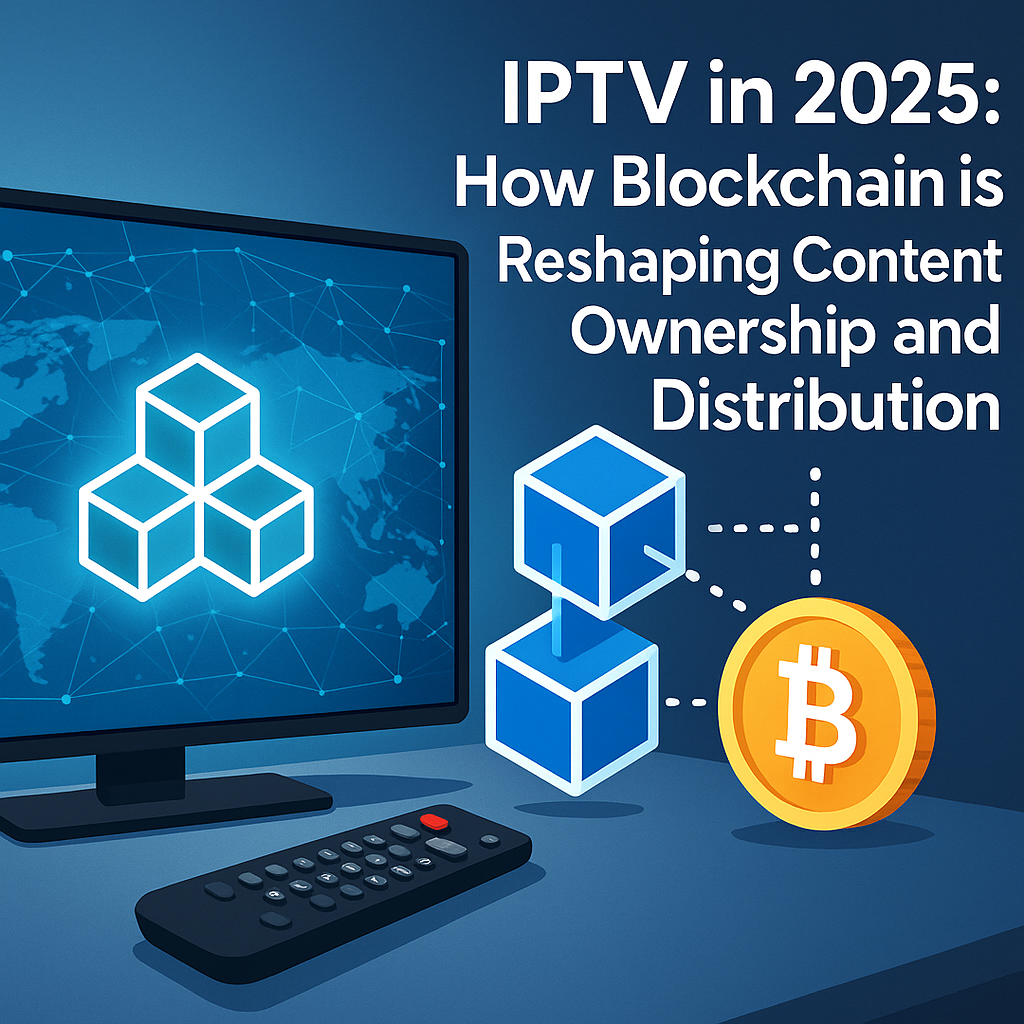
As IPTV (Internet Protocol Television) continues to redefine how viewers consume media, another transformative technology is entering the arena: blockchain. Known primarily for its role in cryptocurrency, blockchain is now being leveraged in digital media to revolutionize content ownership, rights management, and distribution. In 2025, this intersection is not just theoretical—it’s happening, and it’s poised to shift power dynamics in favor of creators and viewers alike.
What is Blockchain and Why Does It Matter for IPTV?
At its core, blockchain is a decentralized ledger that allows for secure, transparent transactions without the need for intermediaries. In IPTV, this technology can:
- Track content ownership and usage rights.
- Enable micropayments directly between viewers and content creators.
- Ensure transparent ad revenue distribution.
- Eliminate piracy through digital watermarking and licensing.
In short, blockchain provides trust, transparency, and control—three things the traditional media world has long struggled with.
Empowering Content Creators
Historically, content creators have had limited control over how their work is distributed and monetized. With blockchain-based IPTV platforms:
- Ownership rights are encoded into smart contracts.
- Creators can receive instant payments per stream or view.
- Licensing agreements can be executed automatically without lawyers or agents.
- Unauthorized duplication becomes almost impossible.
For independent filmmakers, musicians, and educators, this means financial independence and fair recognition.
Decentralized Content Platforms
One of the most exciting developments in 2025 is the rise of decentralized streaming platforms. These platforms run on blockchain and allow users to:
- Upload and stream content without a central authority.
- Vote on content curation or moderation through community governance.
- Tip or fund creators using cryptocurrencies or tokens.
Examples of such platforms are already emerging, offering an alternative to YouTube, Netflix, and traditional IPTV providers.
Smart Contracts and Licensing
Smart contracts are self-executing agreements written into code. For IPTV, this could mean:
- A creator sets the price per stream.
- A smart contract automates the viewer’s payment.
- Revenue is split in real time between contributors (e.g., writer, producer, actor).
These contracts also track usage metrics, making it easy to audit and analyze performance without the need for third-party analytics tools.
Combatting Piracy and Unauthorized Use
IPTV has long struggled with piracy. Blockchain offers a robust solution:
- Each piece of content gets a unique digital fingerprint.
- Only verified users can access it via private keys.
- Content can be traced back to the original owner even if copied.
This increases trust for both content owners and advertisers, which is essential for a sustainable IPTV economy.
Token-Based Monetization Models
Many IPTV platforms in 2025 are adopting token economics. Here’s how it works:
- Viewers earn tokens for watching ads or referring friends.
- Tokens can be used to access premium content.
- Creators earn tokens based on engagement metrics.
- Tokens can be traded or cashed out via crypto wallets.
This creates an interactive and rewarding experience for users while incentivizing loyalty.
Advertising on the Blockchain
Advertising on IPTV platforms is also being disrupted:
- Ad impressions are logged on-chain, preventing fraud.
- Creators and platforms split ad revenue instantly.
- Viewers can opt in or out of ads—and even earn tokens for watching them.
This user-centric approach increases transparency and improves ROI for advertisers.
Challenges to Overcome
Of course, blockchain-based IPTV is not without hurdles:
- Scalability issues: High traffic can still slow down blockchain networks.
- Legal gray areas: Copyright and IP laws vary by country.
- User adoption: Not everyone is ready to embrace crypto wallets or smart contracts.
However, these challenges are being addressed rapidly as adoption grows and platforms become more user-friendly.
The Future Outlook
In 2025 and beyond, we can expect:
- Mainstream adoption of hybrid IPTV-blockchain platforms.
- Integration of AI recommendation systems on decentralized networks.
- Creation of global content marketplaces powered by smart contracts.
- A gradual decline in centralized control over digital media.
Just as IPTV changed how we watch television, blockchain will change who controls and benefits from that experience.
Conclusion
IPTV in 2025 is more than just streaming—it’s becoming a decentralized media revolution. With blockchain technology at its core, this new era empowers content creators, protects digital assets, and redefines monetization models. For creators, viewers, and investors, the message is clear: the future of IPTV is transparent, fair, and decentralized.
